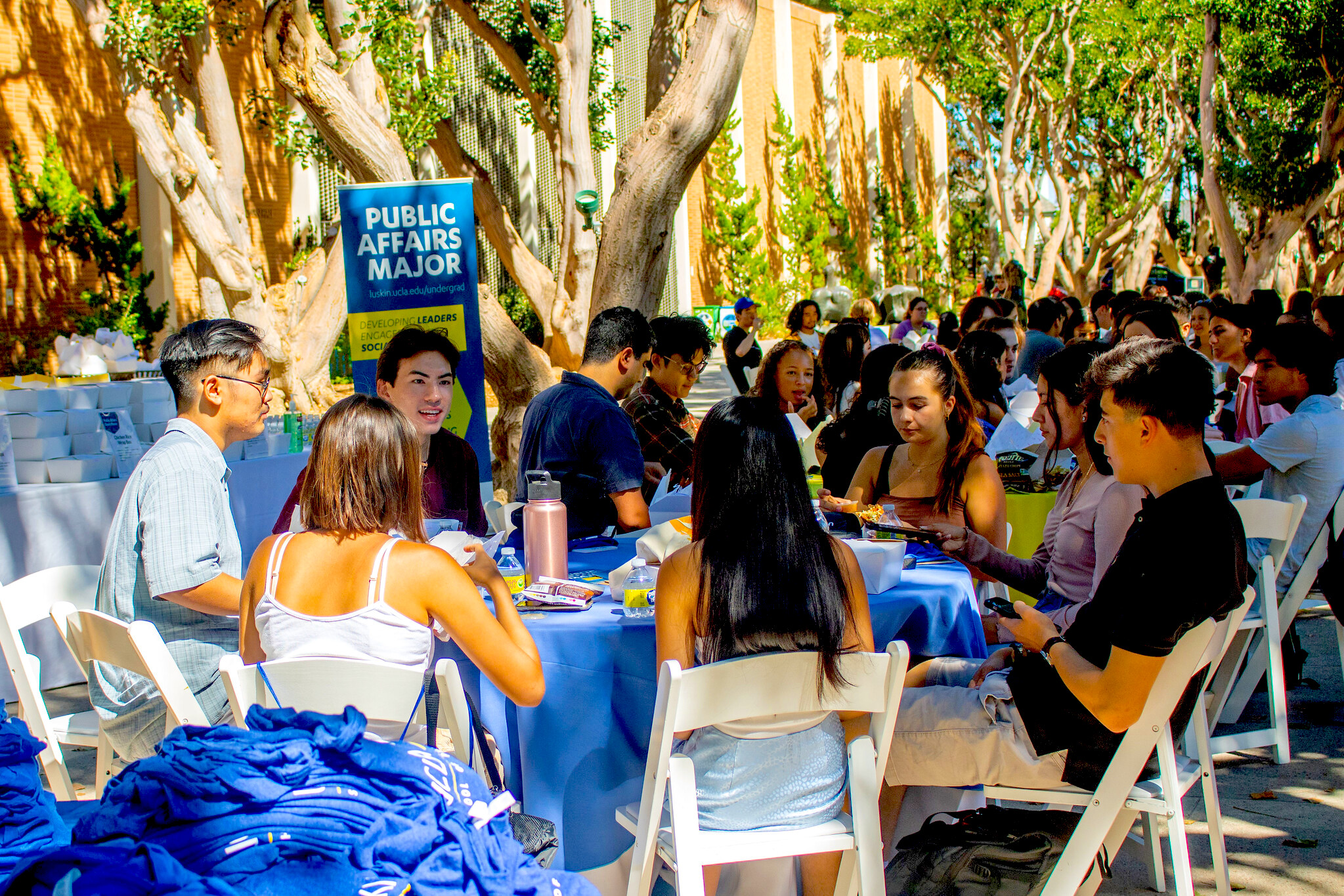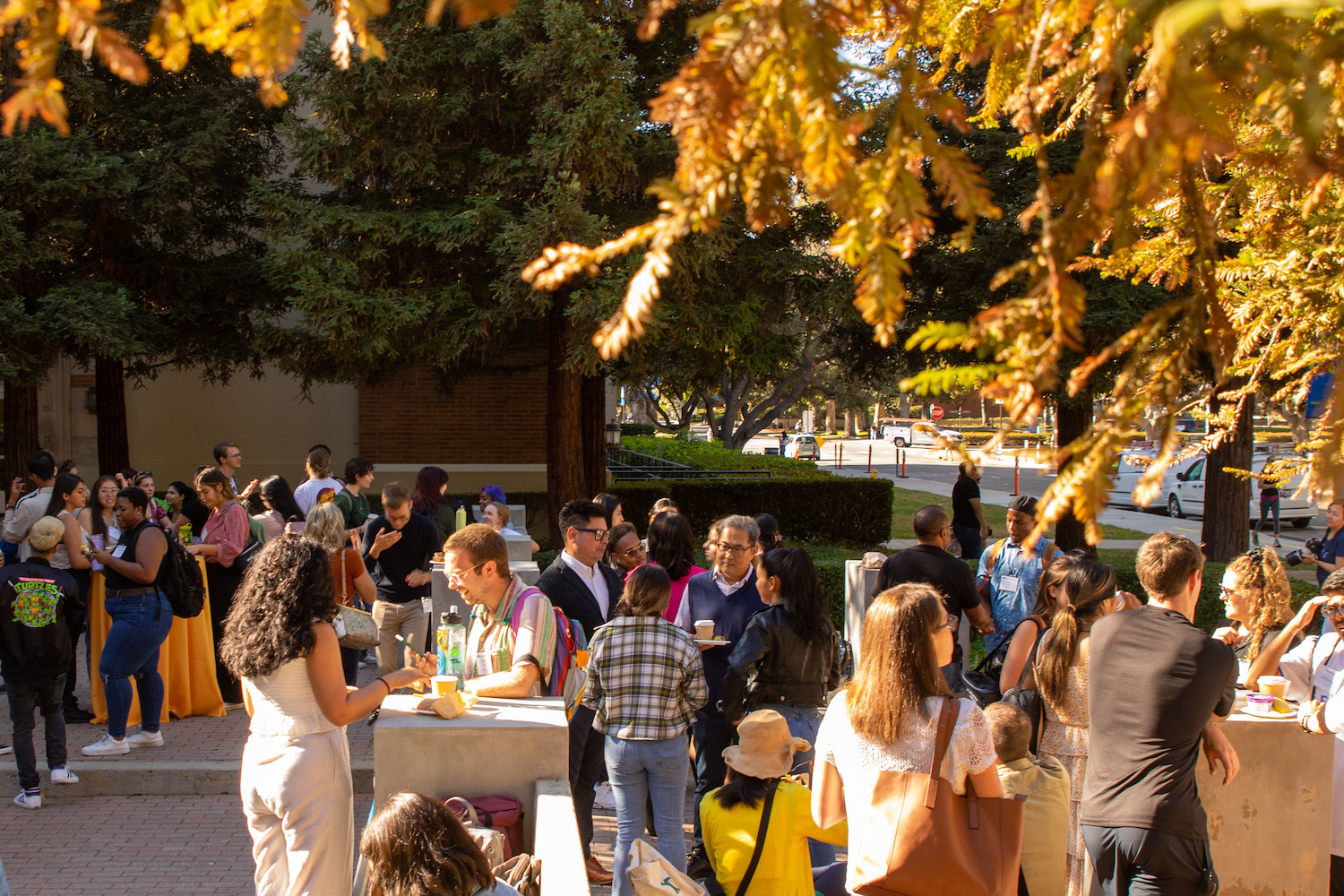As you may have heard by the time this issue reaches you, I have stepped down as dean of the Luskin School of Public Affairs, effective at the end of 2022. [Anastasia Loukaitou-Sideris has been appointed as interim dean, beginning Jan. 1.]
Serving as dean these last six years has been a profound privilege and, without exception, the best experience of my career. And part of what made that experience so wonderful was getting to meet and learn about the incredibly important and impactful work being done by UCLA Luskin alumni across Los Angeles, the state of California and beyond. The Luskin School has many things of which it can be justly proud, but none so exceptional as its more than 9,000 alumni doing good work for good purposes every day.
The last six years have been transformative.
Together, and with the magnificent foundation provided by Renee and Meyer Luskin’s amazing gift, we have expanded and deepened the impact and scope of the School. In six years, we enlarged the ladder faculty to 59 and have hired more than half our current faculty. Today, that faculty is evenly divided by gender, and a majority of UCLA Luskin ladder faculty are scholars of color.
The founding and growth of the undergraduate major in public affairs has more than doubled the student population, from 525 to more than 1,100.
We have dramatically enlarged our overall levels of extramural research and grant support. UCLA Luskin faculty garnered a record $38.3 million just last year.
The Latino Policy and Politics Institute and the Hub for Health Intervention Policy and Practice were both established and flourished. The UCLA Voting Rights Project waged judicial battle across the country to protect fair and equal voting rights. Social workers traveled to asylee detention camps at the southern border to provide support, counselling and assistance. And Luskin School faculty stepped up in a big way to help mitigate the effects of COVID-19 on Los Angeles’ most vulnerable populations.
Since my appointment, our philanthropic efforts together fundraised $39.03 million on 4,522 gifts, both big and small, ranging from 10 dollars to $3.2 million, all to enhance and deepen the teaching and research efforts of the School and its fine faculty.
With the great times came the hard ones. We said goodbye to our friends, mourning VC Powe, Zeke Hasenfeld, Martin Wachs, Mark Kleiman and Leo Estrada, as well as earlier retirees such as Karen Lee, Leland Burns and Joel Handler.
We spent four quarters, two summers and a few additional weeks running five university graduate programs and an undergraduate major from our couches and dining tables, hoping to spare faculty, staff and students from the ravages of a global pandemic. The class of 2020 had graduation online. The class of 2021 had a distanced ceremony in the tennis stadium, without their families present.
But through it all, the Luskin School of Public Affairs persevered, stuck firmly to its mission, trained a generation of change-makers, and had an impact. From the bottom of my heart, thank you.
Events at UCLA have been, frankly, turbulent in the last months, as you have no doubt read. The Luskin School needs leadership that is fresh and energetic to face the challenges and opportunities to come. I look forward to supporting my successor and I hope you will too. I know you will embrace the new dean with the same warmth, help and enthusiasm from which I so richly benefitted. For my part, I look forward to returning to my first love, classroom teaching.
In the coming years, it’s my sincere hope that the Luskin School continues to make change in Los Angeles and beyond. I know that it will. Thank you for being part of that journey and allowing me to join you.
All the best,
Gary



